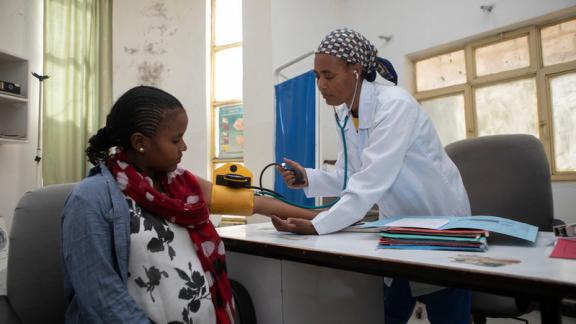By Dr. Vernon Mochache Oyaro, Deputy Director – Evidence and Learning, WISH2ACTION
Annually, on 7 April, the world observes World Health Day, which serves as a global health awareness day. The day is celebrated under the umbrella of the World Health Organisation (WHO) which was established in 1948, to promote health and serve the most marginalised and under-served.
The theme of the 2023 World Health Day: ‘Health for All’, reiterates the rallying call for the Alma-Ata Declaration of 1978: ‘Health for All by 2000’ and speaks to the fundamental nature of health as a human right whose principles include equity i.e., the prioritization of those at greatest need and non-discrimination based on age, race, gender, sexual orientation, ethnicity, or disability status. To ensure everyone can achieve the highest level of health and well-being.
Now more than ever, this concept has increasingly become relevant given the rising inequity in access to quality health due to rising poverty levels, environmental changes, broader gender and sexuality identities, humanitarian crises as well as new and emerging pandemics that disproportionately affect marginalised populations.
A lens on sexual and reproductive health
Specifically, for sexual and reproductive health (SRH), the situation is exacerbated by a recent rise in cultural and religious fundamentalist ideologies[i] that attempt to revoke the rights of vulnerable women and girls to the realisation of their bodily autonomy as well as the right of men to have sex with men. For the world to achieve ‘SRH for All’ therefore, the international development space needs to re-orient focus to ensure that individuals, families, and communities are healthy enough to lead economically productive lives by actively pledging and working towards ‘Leaving No One Behind.’
A Call to Action
A renewed focus calls for several strategies. First, the reaffirming of the rights of individuals to bodily autonomy. Secondly, health interventions should target the primary health care level where the bulk of vulnerable and marginalized populations are located, and the greatest need lies. Thirdly, target communities need to be meaningfully engaged and actively involved in designing and implementing health interventions that address their unique circumstances and sociocultural contexts. And finally, the design and implementation of these health interventions needs to be multi-pronged, incorporating other sectors and integrated within national policies, strategies, and plans of action to ensure that they remain sustainable.
What is IPPF doing?
Since September 2018, the International Planned Parenthood Federation (IPPF) and consortium partners have implemented the Women’s Integrated Sexual Health (WISH) programme funded by the United Kingdom’s (UK) Foreign, Commonwealth and Development Office’s (FCDO) combining both supply and demand-side SRH interventions at primary care level and following the overarching strategy of ‘Leaving No One Behind’. A special focus of the WISH programme has been on offering quality, integrated and inclusive SRH services for those less than 20 years old, the poorest, people with disabilities and those in humanitarian settings.
The WISH programme has resulted in tangible benefits, reaching a landmark of over 2.7 million additional family planning users and providing over 27 million family planning couple-years of protection to women and men across countries in South-East Asia and sub-Saharan Africa. This has averted more than 11 million unintended pregnancies, more than 200,000 maternal and child deaths, nearly 4 million unsafe abortions and saved nearly £600 million in direct health care costs in these settings.
Further to go
The WISH programme exemplifies the mantra of ‘SRH for All’, illustrating the benefits that accrue when international development programmes are implemented within a framework that seeks to understand and respond to local socio-cultural dynamics, allowing for people-centered perspectives and putting the most vulnerable consumers of health services (individuals, families, and communities) at the center of health service delivery while appreciating their uniqueness and adopting their perspectives.
As we mark this day, it is critical that we dedicate ourselves to ensuring access to sexual and reproductive health a reality for all, including high quality health services for individuals and communities, quality care provided by skilled health workers and commitment to achieving universal healthcare by policymakers.
For more information on WISH2ACTION, visit our webpage: About WISH | IPPF
For more on WISH2ACTION resources, visit our resource portal: Wish Portal (ippf.org)
when












